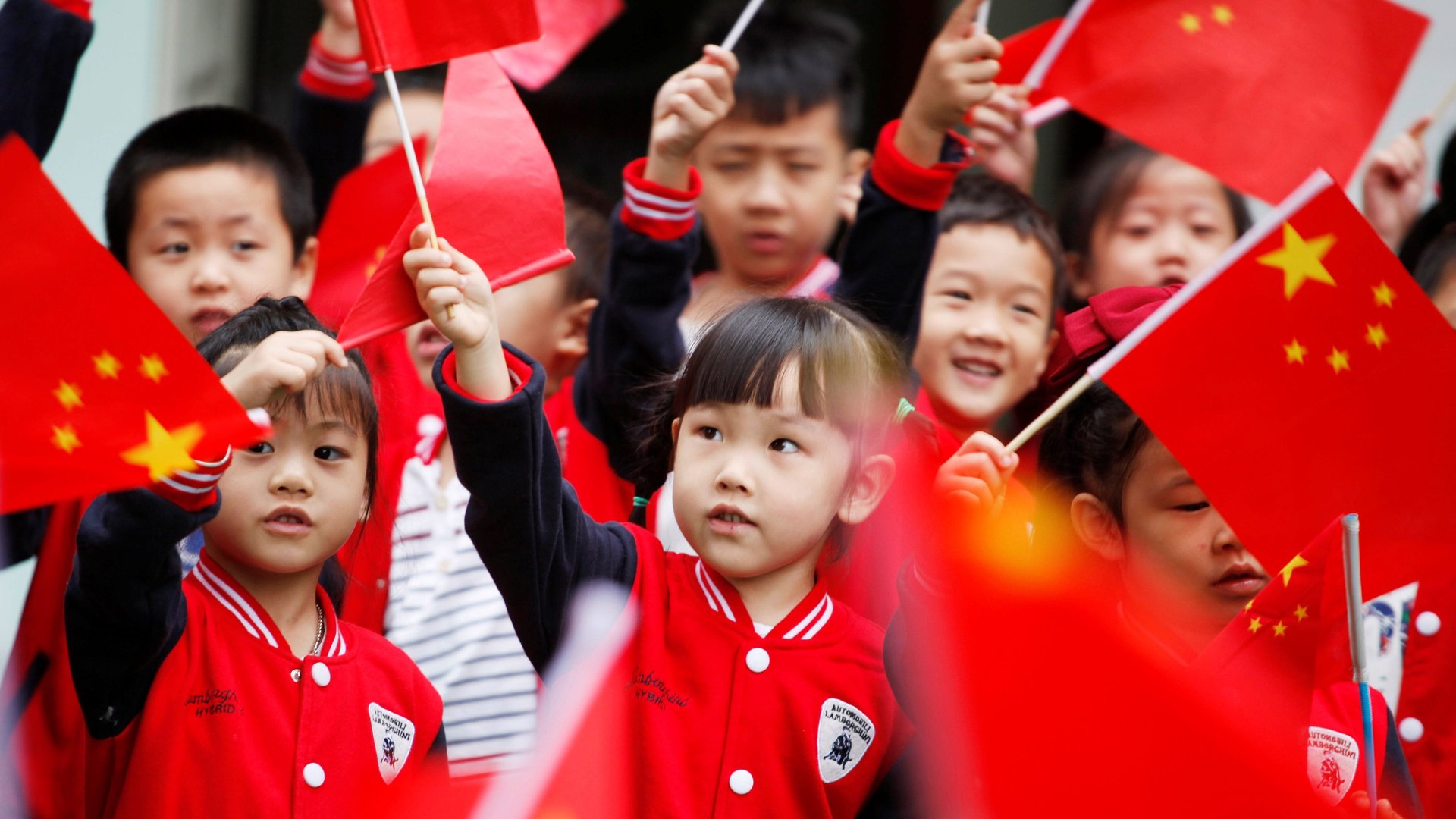China will teach Xi Jinping Thought to schoolchildren
For China’s nearly 300 million students, the country’s recent overhaul of the education sector to reduce their study hours may have been welcome news. But now they’re getting a new assignment that’s not optional at all: studying the ideas of leader Xi Jinping.


For China’s nearly 300 million students, the country’s recent overhaul of the education sector to reduce their study hours may have been welcome news. But now they’re getting a new assignment that’s not optional at all: studying the ideas of leader Xi Jinping.
China’s education ministry has announced that “Xi Jinping Thought on Socialism with Chinese Characteristics for a New Era,” a political doctrine that lays out Xi’s vision to strengthen the Communist Party’s control, must be taught from primary school to universities.
At the core of the ideology is Xi’s emphasis on the supremacy of China’s one-party rule, as well as its need for a strong man leader (i.e. himself) for the country to achieve the world standing it deserves. The thought was enshrined in the Party constitution in 2017, making Xi the first leader since Mao Zedong to have his theories elevated to that stature in his lifetime, and has since penetrated every corner of Chinese society.
The move continues Beijing’s foisting of patriotic education upon youngsters, who are already expected to study previous Chinese leaders’ theories and Marxism. But the spotlight on Xi’s ideology represents an escalation of the growing worship of the leader. Given the expectation that he plans to continue ruling beyond the end of his second term next year, inculcating personal loyalty to him from an early age could be a way of staving off future dissent.
According to the decree (link in Chinese), for primary school students, teaching should focus on “planting the seeds of loving the Party, the country, and socialism in the young hearts…to let them know that general secretary Xi Jinping is the leader of the whole party and the people of the country,” it said.
Keeping out foreign ideas…
The order comes alongside China’s crackdown on private tutoring and private schools which the authorities say is aimed at reducing educational costs and stressful pressure on students. But the moves appear to have an ideological undercurrent as well.
Under the new rules, foreign-based tutors are banned from teaching Chinese kids on online platforms, which in recent years had become one way for young Chinese people to interact with foreigners. This month, China also announced that it had terminated 286 tie-ups between Chinese and elite overseas universities, including those with City University London and New York University, without elaborating on the reasons for doing that. A collaboration with the University of Hong Kong was also among those canceled.
In addition, foreign textbooks are now barred from use in primary schools and middle schools. And there are some voices questioning the requirement of English-language proficiency in the school system.
These moves come at a time when young Chinese people are more isolated from the rest of the world largely due to the coronavirus. The numbers of Chinese foreign students overseas have shrunk due to travel restrictions, while tensions with the US are also causing a drop in enrollments. Australia, for example, has about 150,000 Chinese foreign students this year, compared to more than 210,000 in 2019.
…and deepen nationalism
Against this backdrop, China’s efforts to enhance patriotic education and appreciation of the Communist Party are likely to fuel its already intense nationalist sentiment.
During the Tokyo Olympics, swarms of China’s internet users, many of whom have only recently graduated from school or college, hurled abusive remarks and even death threats towards Japanese athletes, such as when gymnast Dakai Hashimoto beat Chinese competitor Xiao Ruoteng to win gold.
While these patriotic sentiment provide another tool for Beijing to leverage in its dealings with the outside world, such as using it as a weapon to pressure foreign governments or companies, it can’t necessarily count on controlling manifestations of nationalism. In 2012, an anti-Japanese protester in China badly beat a man who was driving a Toyota car, after which “U-shaped lock,” the tool used as a weapon by the demonstrator, became a metaphor for excessive nationalism. The attacker was subsequently sentenced to 10 years in jail.
Given Beijing’s burning desire to regulate everything that it deems “out of control,” it may eventually find it has to add patriotism to that list.